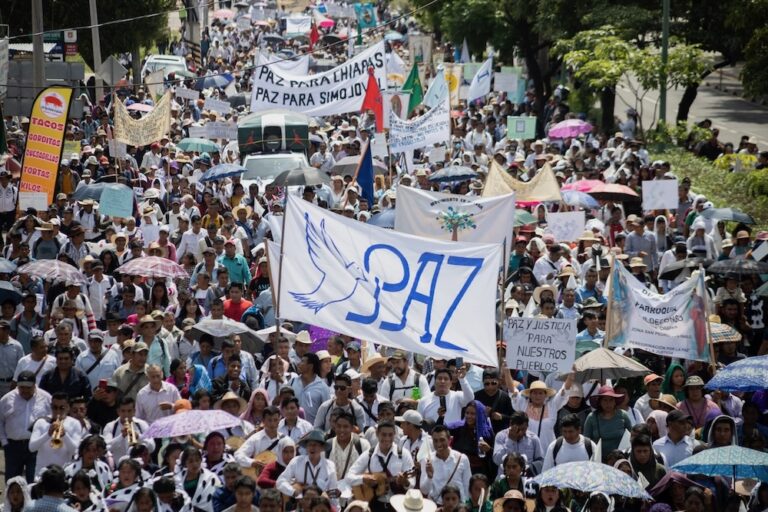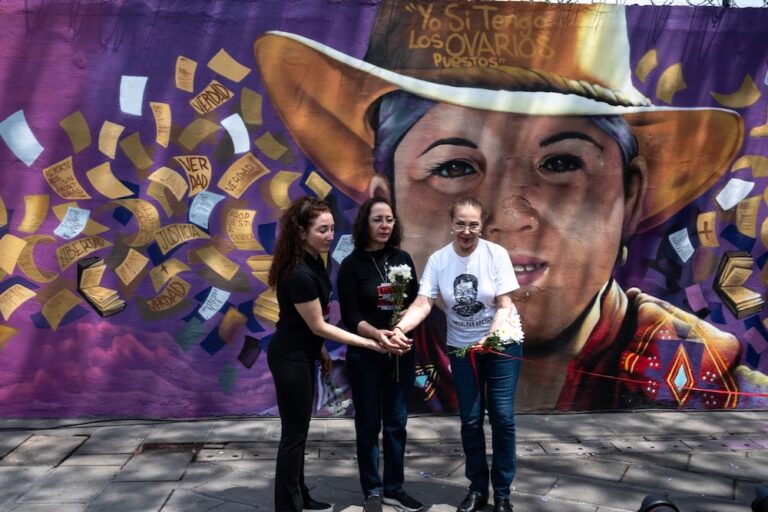(ARTICLE 19/CENCOS/IFEX) – Alejandro González Muñoz, director of “El Circo”, an Aguascalientes-based newspaper focusing on political news and crime, is being pressured by ministry authorities to reveal the name of a source. Aguascalientes is a state in western Mexico. The journalist reports that on 2 July 2008, at around 7:00 p.m. (local time), he arrived […]
(ARTICLE 19/CENCOS/IFEX) – Alejandro González Muñoz, director of “El Circo”, an Aguascalientes-based newspaper focusing on political news and crime, is being pressured by ministry authorities to reveal the name of a source. Aguascalientes is a state in western Mexico.
The journalist reports that on 2 July 2008, at around 7:00 p.m. (local time), he arrived at the newspaper’s offices; when he got out of his vehicle, he noticed several people whom he recognised were ministerial police officers. They told him that they had an order for him to appear before a Public Ministry (Ministerio Público) agent.
The journalist notes that the officers did not present any document to back up their claim that there was an order for him to present himself at the ministry. Nevertheless, the police themselves took him there.
Upon arrival at the Public Ministry, he was taken to an office where he was asked to present his identification documents, which were photocopied, and was informed that he was there in his capacity as a witness.
His appearance at the ministry was required in connection with the broadcast of an interview about the murder of a local businessman on the Radio Bi radio station’s news programme “Buenos días Aguascalientes”, which Martínez Muñoz also hosts. The police officers asked him who his source was; he explained that he did not know the person’s name.
To pressure him, the police resorted to arguing that if the journalist was not telling the truth, or did not provide information that he was aware of, he would be subject to criminal charges and could be punished with three to five years’ imprisonment if found guilty.
The police’s questioning continued to focus on the identity of the source; the journalist reiterated that he did not know the source’s name, and that he had only had telephone contact with the person, who had provided the information anonymously.
Later, to corroborate his statement, he was asked to display the screen of his mobile phone in which he had, the police expected, recorded the telephone number of the person who had sent the information; González Muñoz in fact had not recorded the number, since the call was made from a public telephone. During the entire questioning, the police who had taken him to the ministry were looking over his shoulder.
As well, they asked for his mobile number, and a demonstration of how he had set up the conference call for the interview broadcast on “Buenos días Aguascalientes”.
He was insistently questioned about the source for his interview, and asked to narrate it again. After nearly 90 minutes of questioning under pressure by the officers, the journalist’s lawyer arrived; the questioning was immediately ended.
ARTICLE 19 and CENCOS consider these kinds of practices unacceptable, given that they directly contravene international human rights law and seriously infringe upon journalists’ freedom of expression. Principle 8 of the Inter-American Commission on Human Rights’ Declaration Of Principles On Freedom Of Expression states: “Every social communicator has the right to keep his/her source of information, notes, personal and professional archives confidential.”
For this reason, the legislature approved on 27 April 2005 an amendment to protect journalists’ right to maintain the confidentiality of their sources. Pressure by any authority on journalists to reveal their sources constitutes a violation of the right to freedom of expression, and a crime that has been defined as such under the federal criminal code.
Therefore, ARTICLE 19 and CENCOS respectfully urge Aguascalientes Governor Luís Armando Reynoso Femat to take the legal and political measures needed to ensure that the right to freedom of expression is fully respected in the state he governs.


